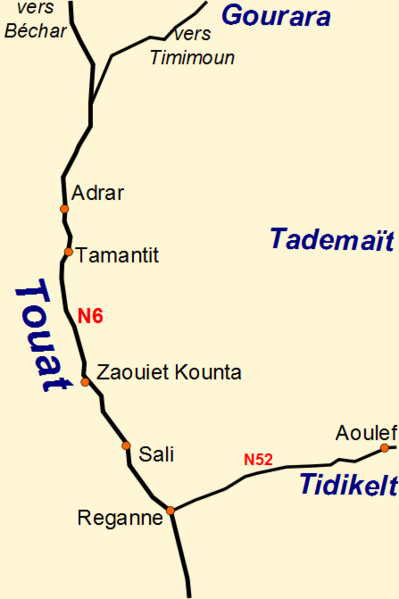What tribes were these?Touat is meant to represent the area controlled by Tribes that Ali relied on militarily and that later revolted. Since they were somewaht autonomous and the base of Ali was around Sijilmassa I decided to represent them as vassals of him.
On one hand, it is said the Ziyyanids held influence through tribal alliances. On the other hand, it’s also said that the Touat, Tementit (possibly erroneous or redundant), and Draa regions were governed by a Ziyyanid sheik.
The Zayyanids did not flee to Touat, but to the Gourara (also “Tigurarin”) region, which is considerably north and was linguistically distinct. Gourara and Touat have historically been home to the Zenati languages of Gurara and Tuwat, respectively. But where Gurara is categorized in the Mzab-Wargla/Northern Saharan oasis cluster, Tuwat is categorized in the Riff cluster.-Given that Touat is where the zayyanids fled and took refuge after the marinids conquered them it makes little sense that they would be a marinid vassal at start.

Last edited:
- 1
- 1


